This week’s edition of Dymphna’s Greatest Hits takes us back to a topic that after fifteen years has already faded into the mists of history. Cindy Sheehan had her fifteen minutes of fame, and then she moved on to… Well, to whatever people do when their fifteen minutes is up.
For those of you who are too young to remember, or weren’t paying attention at the time: Cindy Sheehan’s son Casey was killed in the Iraq War in 2004. In the summer of 2005 she made headlines as antiwar activist cum grieving mother who held a vigil outside George W. Bush’s ranch in Texas to protest the Iraq war. Later she took part in other “peace” actions, and was associated with Code Pink in some fashion.
Dymphna’s take on Cindy Sheehan was quite different from what was going around in the rest of the right-wing blogosphere in 2005. Since she had lost her own child just two years before, Dymphna had some insight into what another grieving mother might be feeling, and addressed her in that spirit.
It’s now been nine months since Dymphna died. Last summer was a time of horror and devastation for me, against which my psyche has protected me by making me unable to remember a lot of it. I just have flashes, snapshots, brief vignettes from those first awful weeks — enough to recall the utter misery of it. And it’s still here with me, but nowhere near as intense.
However… After living with Dymphna through the time of Shelagh’s death, I can tell you that the death of a child is far worse than the death of a spouse. Dymphna never really came back to her old self afterwards. I encouraged her to start this blog as a way to bring herself out of the worst of it, to mitigate her bottomless sorrow by doing something useful and important that drew on her gifts as a writer.
And here I am, fifteen years later, circling back to revisit that difficult time. Re-reading her essay brought it all back for me.
An Open Letter to Cindy Sheehan
by Dymphna
Originally published August 20, 2005
I had to look up your name since I have avoided your story as much as possible. Not out of a lack of compassion for your sorrow, but rather because of my own fragility and the sorrow I carry for my own dead daughter.
Here’s what I know about your story — and when you think about it, to have learned this much despite not having a TV and making an effort to avoid learning about your odyssey, it’s amazing I know as much as I do.
Your son Casey was a soldier and he died in Iraq. At first, you were able to maintain in the face of this catastrophic loss. I believe you even met with the President at one point? See — even I, with no access to regular media and a real wish to avoid your story, even I know these things. Or maybe what I “know” is some garbled version of what has been going on for you in your public grief.
This is a guess — an educated guess from one mother of a dead child to another — but I think things began to unravel as time went on and the reality of Casey’s complete and total and lifelong and irrevocable absence hit your consciousness like a fist sinks into a gut. And the bunched knuckles kept coming back to deliver blow after unending blow.
One picture I happened upon in the grocery store showed you on your knees. I presume it was taken in Crawford since someone who didn’t know me well wanted to discuss your story and said you’d gone to President Bush’s ranch. I remember turning away from your face as you knelt there. Yours was a sorrowful visage, a broken face like the reflection from a fractured mirror. My heart twisted for you even though I barely glanced at the picture.
Your grief has served to polarize others. Some say you’re being used, some dismiss you as “crazy” — and tell me, what mother of a dead child isn’t crazy? You’ve been cheated of your son; you walk through the valley of the shadow of death and no one comes to greet you. There will never, ever again be a laughing bear hug from this son grown tall and handsome.
When a husband or wife dies, we call the surviving partner the widow or widower. Why do you think it is that there is no one word to describe our condition, Cindy? Mother-of-a-dead-child is the best we can do? The lack of a name gives you some inkling how much our culture avoids the knowledge of this sorrow. If we named it we’d have some power over it. But the condition you and I share is unnamed because since time immemorial parents have dreaded this loss. It is the worst. There is nothing else that can be done to us. A motherless child is a pitiful creature and carries a life-long emptiness he or she tries to fill with other grown-ups. A childless mother is a crazy person and nothing can fill the hole, not if she had a baby a year for the rest of her life.
Do you have other children? I have three. And when people ask me, pleasantly, “how many children do you have?” I look at them blankly. It is all I can do to not to run screaming from the room.
Here is where I liken my experience to what is happening to you: after Shelagh’s sudden death, after the Rescue Squad carried her off and I watched them disappear down the drive, after the Medical Examiner returned her body to us, there was lots to do. The first morning I awoke I heard her say distinctly, laughing, “Mom, welcome to the first day of the rest of your life without me.” I think she was trying to make it easier in her Shelagh way.
There was so much to do. Her children needed clothing for the funeral, there were burial arrangements to make, a minister to call, family visitation to be arranged, a burial service to be created. So many, many people to notify. Elderly grandparents and a large contingent of Irish relatives to talk to and arrange for flights. As the days passed, I thought to myself “I can do this. I can just keep having this whole thing to organize and plan and I’ll be okay. As long as I never have to bury her, I’ll be fine.” Yes, this is crazy thinking. Even then, I vaguely knew that.
Continue reading →
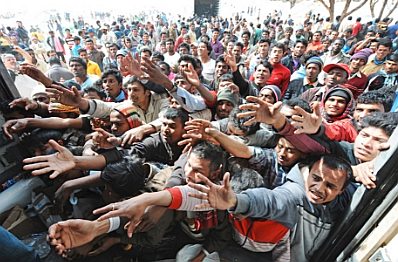

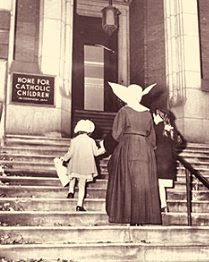 These aren’t rhetorical questions, but they are (in a sense) loaded. Unless you’ve made a study of the subject, or been a resident of an orphanage or foster home, you’d have to base your answer on what you ‘feel’ rather than any hard information. No surprises there: we all do that on any number of issues. We work from our own experience, from observations, maybe from reading or from conversations with other people. In these ways we arrive at answers crafted to satisfy our intellect and our practical experience.
These aren’t rhetorical questions, but they are (in a sense) loaded. Unless you’ve made a study of the subject, or been a resident of an orphanage or foster home, you’d have to base your answer on what you ‘feel’ rather than any hard information. No surprises there: we all do that on any number of issues. We work from our own experience, from observations, maybe from reading or from conversations with other people. In these ways we arrive at answers crafted to satisfy our intellect and our practical experience.
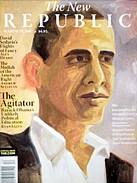 The dust-up concerns a series of essays The New Republic has published by a supposed soldier in Iraq who describes anecdotes about his fellow soldiers that are (a) horrific and disgusting, and (b) inaccurate in their details. Of course, (b) simply means another “fake-but-accurate” strand in the MSM tapestry of careless lies and half-truths woven to serve their purposes. With the MSM, f-b-a is a standard sufficient to allow them to print what the rest of us consider slanderous, but which gives them license to put their agenda into the public sphere for consumption by the willing or the unwary.
The dust-up concerns a series of essays The New Republic has published by a supposed soldier in Iraq who describes anecdotes about his fellow soldiers that are (a) horrific and disgusting, and (b) inaccurate in their details. Of course, (b) simply means another “fake-but-accurate” strand in the MSM tapestry of careless lies and half-truths woven to serve their purposes. With the MSM, f-b-a is a standard sufficient to allow them to print what the rest of us consider slanderous, but which gives them license to put their agenda into the public sphere for consumption by the willing or the unwary. As I read his reply, the time I’d spent working with homeless people came flooding back in full Technicolor. I intuitively knew that these were not only homeless people but likely from that class of homeless known as “the ambulatory mentally ill”.
As I read his reply, the time I’d spent working with homeless people came flooding back in full Technicolor. I intuitively knew that these were not only homeless people but likely from that class of homeless known as “the ambulatory mentally ill”.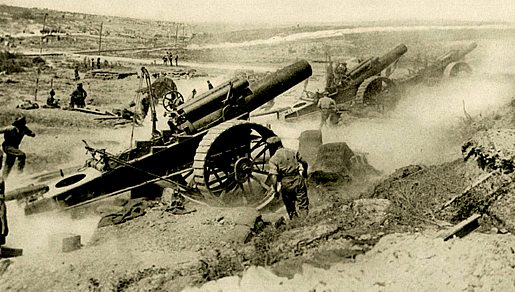
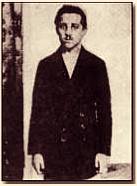 That moment, of course, is June 28, 1914. The incident is the assassination of Archduke Franz Ferdinand, heir to Austro-Hungarian throne, by Gavrilo Princip in Sarajevo.
That moment, of course, is June 28, 1914. The incident is the assassination of Archduke Franz Ferdinand, heir to Austro-Hungarian throne, by Gavrilo Princip in Sarajevo.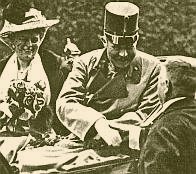 The first attempt on Franz Ferdinand’s life was a grenade under the Archduke’s car as they drove from the train station to City Hall for the usual reception. However, the driver of the car saw this and managed to speed ahead, avoiding damage. Unfortunately, two people in the car following were seriously injured. Thus, after the reception the Archduke insisted on going to the hospital to see them.
The first attempt on Franz Ferdinand’s life was a grenade under the Archduke’s car as they drove from the train station to City Hall for the usual reception. However, the driver of the car saw this and managed to speed ahead, avoiding damage. Unfortunately, two people in the car following were seriously injured. Thus, after the reception the Archduke insisted on going to the hospital to see them.



